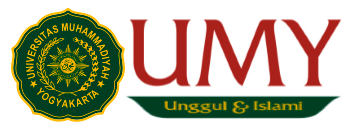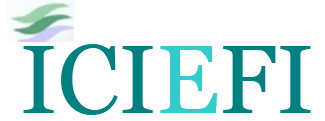Quantitative Economic Evaluation of Zakah-Poverty Nexus in Kano State, Nigeria
Abstract
Nigeria is the largest economy in Africa and yet, a poverty-ridden oil-producing country. Thus, poverty remains a persistent macroeconomic challenge in Nigeria with devastating consequences, especially in the Muslim populated states like Kano. Surprisingly, Kano state, which is the most populated state in Nigeria with more than 15 million people, is one of the 14 most poverty-ridden states in Nigeria, despite the practice of Zakah institution (ZI). Therefore, this study empirically evaluates the revenue base and impacts of ZI on poverty alleviation in Kano state. Hence, 1,230 copies of questionnaires were administered and seven high profile Zakah payers were interviewed. Meanwhile, the data analysis was accomplished using descriptive statistics, correlation, and regression techniques, among others. The major findings indicate that the enormous revenue base of ZI for poverty alleviation exists, because of the significant Zakah payment by high ability Zakah payers. Similarly, ZI positively impacts on poverty alleviation. All in all, the findings lend credence to the Zakah-effectiveness hypothesis. Hence, this study recommends that Kano state government should exemplify more accountability and transparency in Zakah management. Moreover, a Ministry of Zakah and Hubusi Affairs should be established with the mandates of poverty alleviation and economic empowerment in the state.
Keywords
Full Text:
PDFReferences
Abdullahi, S. A. (2006). An assessment of the impacts of zakah on the beneficiaries in the six local government areas of Kano metropolis (Sponsored Research Project). Kano: Kano State Zakkah and Hubusi Commission.
Abdussalam, O. I., Johari, F. & Alias, M. (2015). Is zakah effective to alleviate poverty in a Muslim society?: A case of Kwara state, Nigeria. GJAT, 5(1), 33-41.
Abu Bakar, N. B., & Abdul Rahman, A. (2007). A comparative study of zakah and modern taxation. J.KAU: Islamic Economics, 20(1), 25-40.
Ab Rahman, A., Alias, M. H., & Syed Omar, S. M. N. (2012). Zakat institution in Malaysia: Problems and issues. GJAT, 2(10), 35-41.
Adamu, S. & Saad, R. A. (2016). The impact of public governance quality, accountability and effectiveness on intention to pay zakat: Moderating effect of trust on zakat institutions. International Journal of Management Research & Review, 6(1), 1-8.
Ahmed, H. (2004). Role of zakah and awqaf in poverty alleviation (Occasional Paper No. 8.).Jeddah: Islamic Research and Training Institute, Islamic Development Bank - IDB.
Akanni, A. A. (2006). Profiling a model for the administration of zakat in a multi-religious society: The case of south-western Nigeria. Journal of Philosophy and Culture, 3(2), 129-150.
Ali, K. M. & Saaid, A. E. (2016). Zakah for poverty alleviation: Evidence from Sudan (IRTI Working Paper No. WP/2016/11). Jeddah: Islamic Research and Training Institute.
Aliyu, S. U. R. (2002). An appraisal of the performance and predicaments of the Kano Zakah Foundation. Al-Ijtihad: The Journal of Islamization of Knowledge and Contemporary Issues, 3(1), 71-87.
Amuda, Y. J. (2013). Empowerment of Nigerian Muslim households through waqf, zakat, sadaqat and public funding. International Journal of Trade, Economics and Finance, 4(6), 419-424.
Ashafa, S. A. (2014). The administration of zakat in Lagos and Ogun states. Research on Humanities and Social Sciences, 4(21), 74-87.
Ayuniyyah, Q., Pramanik, A. H. Md Saad, N. & Ariffin, M. I. (2018). Zakat for poverty alleviation and income reduction: West Java, Indonesia. Journal of Islamic Monetary Economics and Finance, 4(1), 85-100.
Chin, W. W. (1998). The partial least squares approach to structural equation modeling, In G. A. Marcoulides (Ed.), Modern Methods for Business Research (pp. 295-336). Mahwah, New Jersey: Laurence Erlbaum Associates.
Falk, R. F., & Miller, N. B. (1992). A primer for soft modeling. Ohio: The University of Akron Press.
Hadejia, I. M. (2017, November 19). Nigeria and the Asian Tigers. Daily Trust, p. 40.
Ibrahim, S. M. (2015). Systematic zakat management and administration: A framework for Kano state, Nigeria. IJRDO – Journal of Applied Management Science, 1(8), 1-19.
Kano State Zakkah and Hubusi Commission (2004). Brief report for the year 1425 A.H./2004. Kano: Author.
Kano State Zakkah and Hubusi Commission (2006). Collections of Zakah from May 29, 2004 to May 29, 2006. Kano: Author.
Kano State Zakkah and Hubusi Commission (2010). The comprehensive achievements from inception to date (2010=1431AH). Kano: Author.
Kano State Zakkah and Hubusi Commission (2015). Zakah (cash) collected from individuals and corporate bodies in Kano state. Kano: Planning Research and Statistics Department, Kano State Zakkah and Hubusi Commission.
Kefeli, Z., Johari, F., Ahmad, N., Mohd Daud, S. N., & Shah Zaidi, M. A. (2017). Factors affecting quality of life of medical assistance recipients of Zakat fund in Malaysia. International Journal of Economics, Management and Accounting, 25(1), 125-140.
Krejcie, R., & Morgan, D. (1970). Determining sample size for research activities. Educational and Psychological Measurement, 30, 607-610.
Maidugu, A.S. (2002). Alleviating poverty using zakah resources: A schema for Shari’ah implementing states in Nigeria. Al-Ijtihad: The Journal of Islamization of Knowledge and Contemporary Issues, 3(1), 3-19.
Muktar, B. (2017). An empirical study of education expenditure on human capital development in Kano state, Nigeria. (Unpublished Undergraduate Project). Yusuf Maitama Sule University, Kano- Nigeria.
Mustafa, D., & Maiyaki, A. A. (2011). The economic significance of the zakah system: An exploratory analysis of its fiscal characteristics. Elixir Finance Journal, 36. Retrieved October 9, 2012, fromwww.elixirjournal.org.
Mustafa, D. A., & Idris, M. (2015). The contributions of Islamic economic institutions to modern Nigeria. Journal of Islam in Nigeria, 1(1), 36-58.
Mustafa, D. A., & Maiyaki, A. A. (2016). Synergising zakah and Islamic banking for economic empowerment of the Ummah, In Y. O. Imam, R. I. Adebayo & A. I. Aliagan (Eds.), Dynamics of revealed knowledge and human sciences (pp. 90-108). Ibadan: Spectrum Books Ltd.
Mustafa, D., Sabiu, T. T., & Bello, A.I. (2017a). Re-engineering the institutions of zakah and waqf for economic empowerment in Kano state, Nigeria. Northwest Journal of Social and Management Sciences,1(1), 34-53.
Mustafa, D., Baita, A. J., Sabo, M., & Adhama, H. D. (2017b). Zakah system for poverty alleviation in Kano state, Nigeria: Pilot study on the validity and reliability of survey instrument. Paper presented at The International Conference on Regional Economic Integration, Kano - Nigeria.
Mustafa, D., Baita, A. J. & Mamman, A. (2018). Zakah institution and poverty alleviation nexus in Kano state, Nigeria: A structural equation model approach. Abuja Journal of Economics and Allied Fields, 9(5), 156-171.
Nadzri, F. A. A., AbdRahman, R., & Omar, N. (2012). Zakat and poverty alleviation: Roles of zakat institutions in Malaysia. International Journal of Arts and Commerce, 1(7), 61-72.
National Population Commission (2006). Population census. Abuja: Author.
Wali, H. N. (2013). Utilization of zakat and Islamic endowment funds for poverty reduction: A case study of Zakat and Hubusi Commission, Kano State-Nigeria. Journal of Economics and Sustainable Development, 4(8), 141-147.
Wedgwood, A., & Sansom, K. (2003). Willingness-to-pay surveys – a streamlined approach: Guidance notes for small town water services. Water, Engineering and Development Centre (WEDC), Loughborough University.
Wooldridge, J. M. (2009). Introductory econometrics: A modern approach (fourth edition). South-western: CENGAGE Learning.
Zainal, H., Abu Bakar, A., & Saad, R. A. (2016). Reputation, satisfaction of zakat distribution, and service quality as determinants of stakeholder trust in zakat institutions. International Journal of Economics and Financial Issues, 6, 72-76.
DOI: https://doi.org/10.18196/ijief.2120
Refbacks
- There are currently no refbacks.
Copyright (c) 2020 International Journal of Islamic Economics and Finance (IJIEF)

This work is licensed under a Creative Commons Attribution-ShareAlike 4.0 International License.
International Journal of Islamic Economics and Finance (IJIEF)
International Program for Islamic Economics and Finance
Department of Economics
Faculty of Economics and Business
Universitas Muhammadiyah Yogyakarta
Pascasarjana Building, Ground Floor
Jl. Brawijaya (Ringroad Selatan), Kasihan, Bantul
D.I. Yogyakarta 55183, INDONESIA
Official email: ijief@umy.ac.id












1.jpg)